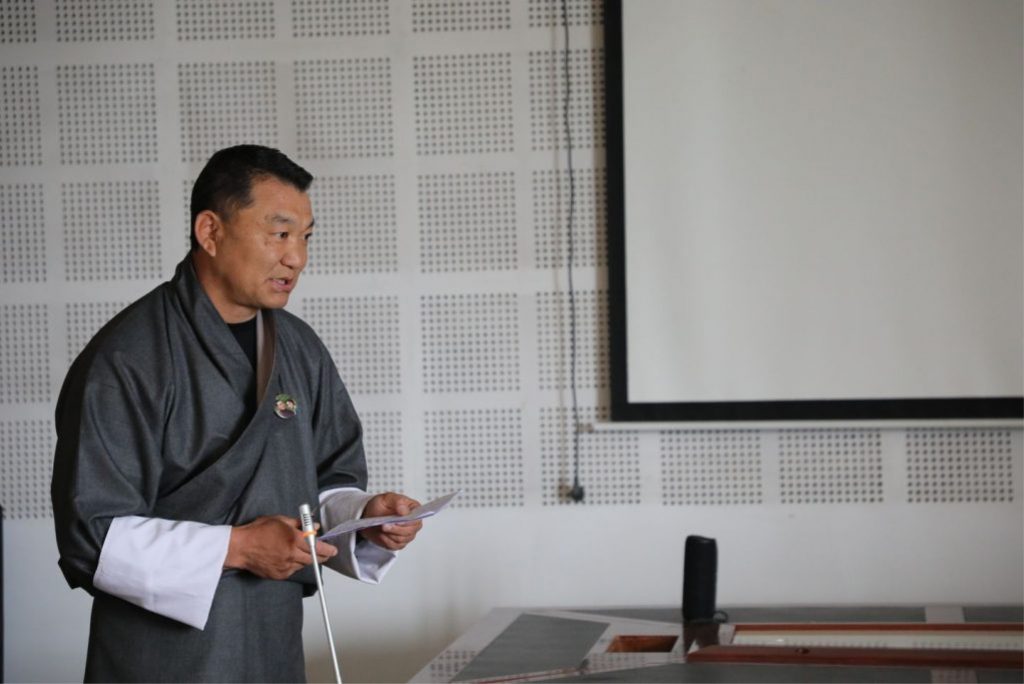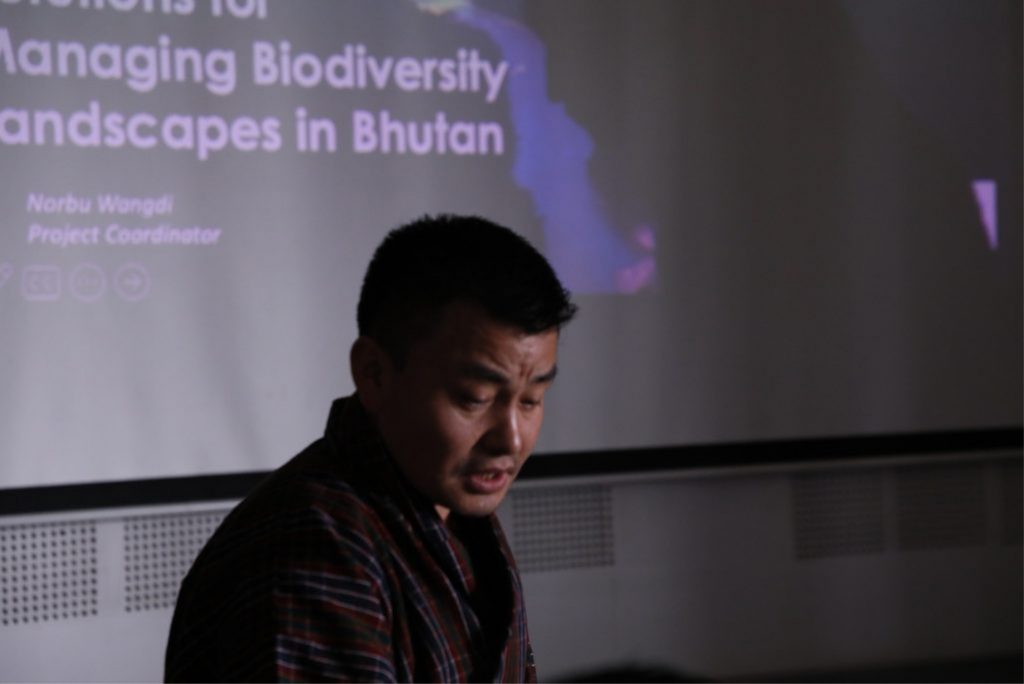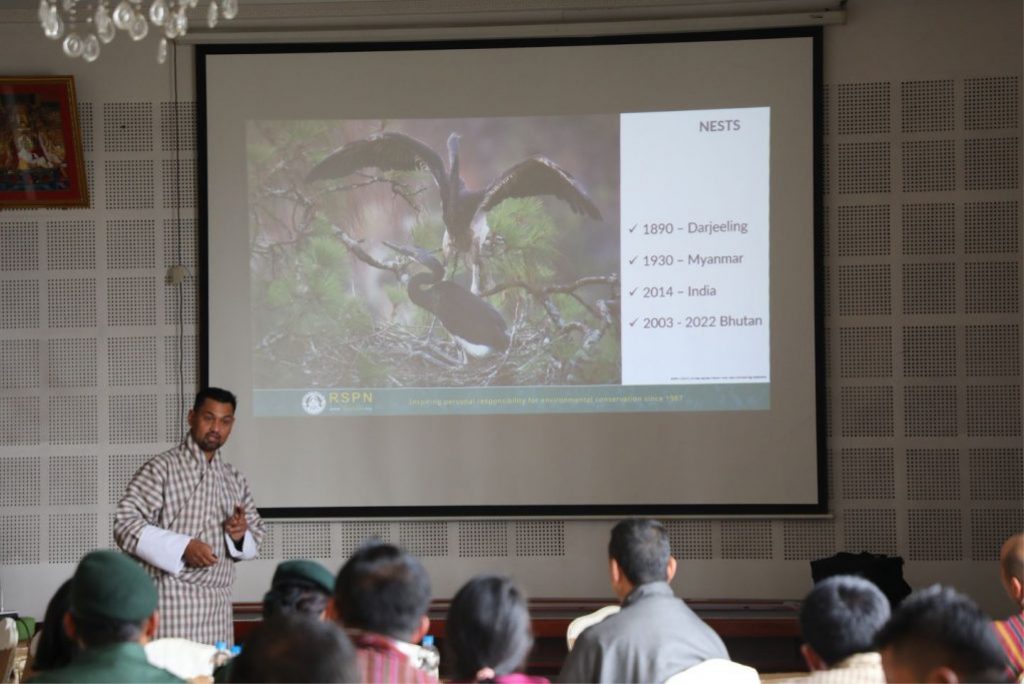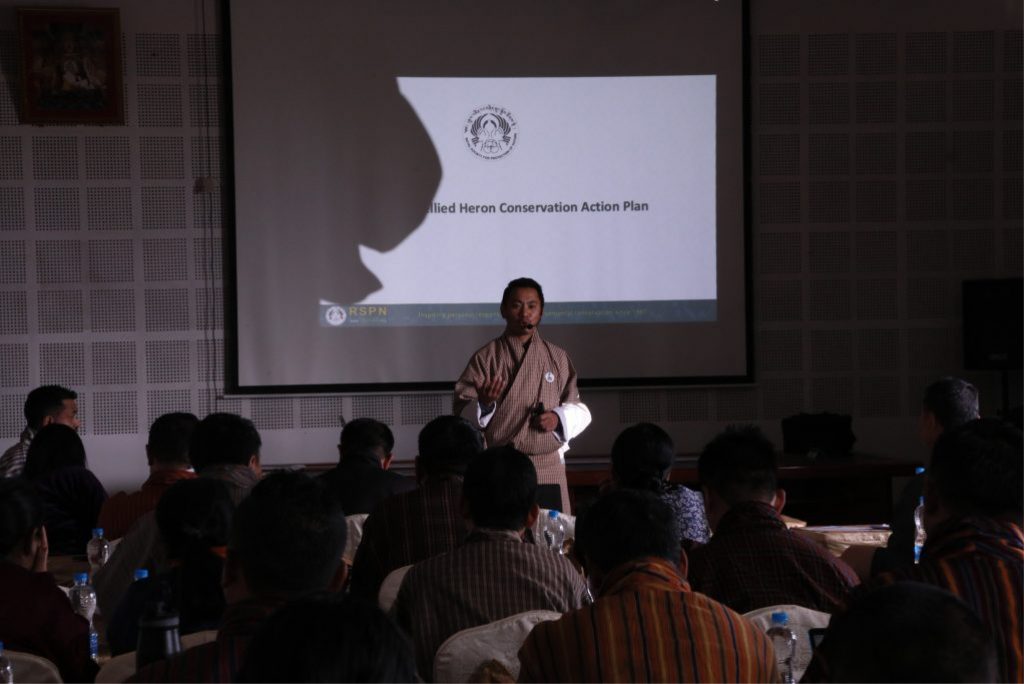From the several species at risk in Bhutan, the critically endangered White-bellied Heron (WBH), a bird closely associated with the Himalayan freshwater river system, is on the verge of extinction. Today, WBH is the rarest and the most critically endangered heron globally. Fewer than 60 are left worldwide, with less than five known breeding pairs. Bhutan is home to 45% of the global population and 90% of known breeding birds. Royal Society for Protection of Nature (RSPN), in collaboration with our partners, have been putting efforts thus far in preserving and recovering the last remaining populations in Bhutan. Despite our concerted efforts, the wild population size has remained extremely low, and the recent population survey indicates that the population is declining and requires immediate collective efforts.
Although we have upscaled our efforts in protecting the wild populations and restoring their habitats in recent years, we fear the tiny population might disappear anytime, even before we can fully understand them. Therefore, to save WBH and other highly threatened species, there is a need for close cooperation and strategic coordination at the national level. RSPN have organized the National White-bellied Heron knowledge sharing and coordination meeting to strategize and enhance stakeholder coordination in WBH conservation. The two-day workshop from 28-29 December 2022 aims to bring together experts and key stakeholders from government agencies, civil society organizations, international organizations as well as business entities to discuss and share insights on diverse conservation practices, technologies, developments, and businesses that would pave a pathway to robust and coordinated efforts among the key stakeholders in saving this species.
The objectives of the workshop are:
The WWF’s Living Planet Report 2022 found more than 69% decline in the populations of mammals, birds, amphibians, reptiles, and fish across the globe within less than 50 years. At least a million species are at risk of extinction today. In addition, half the world’s GDP depends on nature, and biodiversity loss could impact up to $44 trillion global economy, directly threatening global food security and human survival. Therefore, there is undeniable urgency in bending the curve of global biodiversity loss and sustainable use of natural resources through a coordinated effort among every organization.




Copyright © 2026 RSPN All Rights Reserved